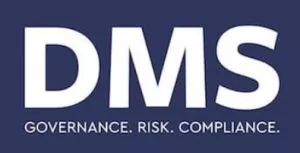The introduction of MiFID II across Europe on 3rd of January 2018 will represent the largest single body of regulation to affect the investment management industry, while also imposing a number of new requirements on the sell-side community. When entwined with current funds-based legislations, namely AIFMD and UCITS, this new layer of regulation will further increase the challenges faced by the investment funds industry. From an Irish funds viewpoint, this new paradigm is made all the more interesting with the opportunities that Brexit presents.
Unlike AIFMD and UCITS which deal with funds-based issues, MiFID II focuses on investment operations, predominately via business conduct or through counterparty relationships.
Regulatory consistency
Regulatory consistency when applying MiFID II with existing AIFMD and UCITS provisions will be keenly watched by participants. For example, AIFMD's reverse solicitation requirements for third country (i.e. non-EU managers) closely resembles the aim under MiFID's provision of services at the "own exclusive initiative" of the client. Personnel responsible for compliance within distribution teams will be hoping that these are applied in a harmonised manner. Similarly MiFID II's product governance and distribution requirements will mean that AIFMs or UCITS Management Companies will be held to a higher standard if the AIF or UCITS is being distributed by a MiFID firm. As such, distributors will need to provide the MiFID entity with details on investor suitability, target market, and various other measures. Effective regulation will require a harmonised application of this across regulatory regimes within jurisdictions, as well as across jurisdictions.
Consistent application
Consistent application will also be sought by Management Companies, who offer rigorous, robust governance and oversight by providing a consistent compliance framework within which funds can operate. With MiFID II the challenge will be applying this to the investment operations of firms via a hosted solution – as is done with AIFMD and UCITS - while also demonstrating substance. Regulators will be keen to ensure clear, accountable arrangements are in place. Given the increasing regulatory compliance burden, it is conceivable that the industry will see a move toward similarly well-governed, MiFID-hosted solutions. In Ireland, Brexit will drive the market's response, and the Central Bank will need to adjust accordingly.
Transaction reporting
Transaction reporting will also become more onerous due to the introduction of EMIR reporting combined with MiFID/MiFIR rules, and with clear indications from the sell-side that they will no longer be in a position report on behalf of the buy-side. An inspection of requirements under each regime shows that despite the instrument type in question, inconsistencies in the reporting of "common fields" will mean that systems will need to be adaptable to multiple formats. It is also likely that future changes will be made as regulators needs evolve and they themselves become more accustomed to dealing with high volume, high granularity reporting. Service providers that see transaction reporting as an 'add-on' may be best positioned to engage out-sourcing arrangements, and may augment existing services such as Annex IV reporting.
Conclusion
There are a raft of other considerations which will impact the operating model of all investment firms, such as best execution, payment for research, trade (same day) reporting, and record keeping.
From an Irish funds view point, the challenge is not insurmountable. A pragmatic supervisor coupled with a clientdriven and skilled, flexible workforce put Ireland at the forefront of the MiFID II opportunity.
The content of this article is intended to provide a general guide to the subject matter. Specialist advice should be sought about your specific circumstances.

